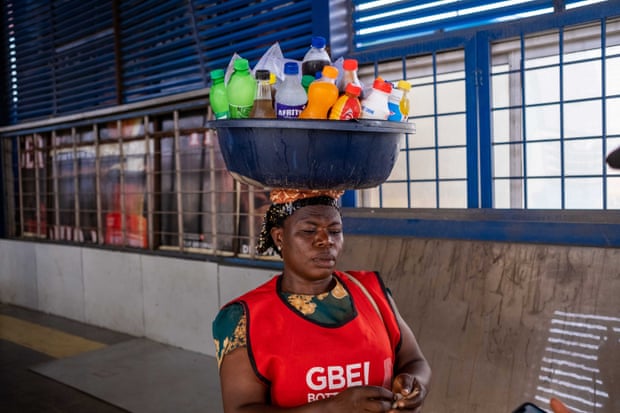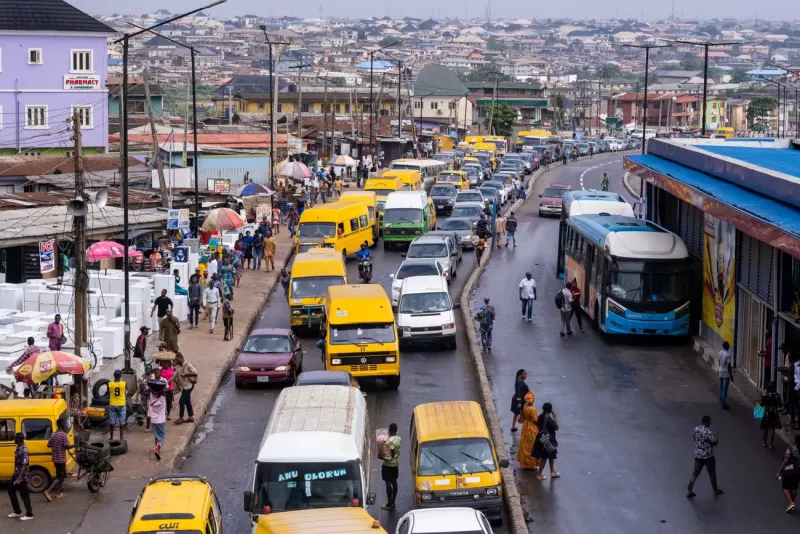Omowumi Adekanmbi and her four children leave their one-room apartment shortly after six in the morning. She arrives at work an hour later in the snarled morning traffic, serving the irate Lagos commuters in their cars as her clients.
Adekanmbi skillfully distributes soda cans from a bowl balanced on her head while simultaneously gathering naira money in the other hand. She purchases more when the bowl is empty and then goes back to the automobile lines that have hardly moved in the meanwhile.
The 24 million residents of the metropolis can spend more than 30 hours per week stuck in congested streets. For some people, that is a viable source of income.

from Lagos' Adebayo Abdul Rahman. Imaginations of Benson Ibeabuchi
The Bill and On good days, Adekanmbi makes about 3,000 nairas (£6) profit.
READ ALSO: Oscar Pistorius: South African ex-Paralympian seeks to force early prison release
In Nigeria, where 80 million Nigerians are living below the poverty line, according to the country’s statistics bureau, the plight of people such as Adekanmbi reflects widespread economic problems, says Adesola Afolabi, an economist, and editor at the business news site stears.
“When we look at the cost of their day-to-day livelihood under the harsh conditions involved, you will begin to count things like health cost, physically and mentally,” she says. Melinda Gates Foundation funds global development.
Regarding this content
Omowumi Adekanmbi and her four children leave their one-room apartment shortly after six in the morning. She arrives at work an hour later in the snarled morning traffic, serving the irate Lagos commuters in their cars as her clients.
Adekanmbi skillfully distributes soda cans from a bowl balanced on her head while simultaneously gathering naira money in the other hand. She purchases when the bowl is empty.
Father-of-four Ojo Nduka also works on the clogged streets of the city. "I began selling in the street ten years ago. There isn't a better job that I could find.
He turned down a job offer as a driver last year that would have paid him 30,000 naira per month, which is the federal minimum wage.
There won't be enough room for us even though I have four kids. I make more money by selling in the street. Depending on how much I sell each day, it changes. I generate a [monthly] profit of over 50,000 naira when the market is strong.
All of my kids are still in school, and I use my profit to pay for their tuition," he continues.
Street hawking has been prohibited by the state government twice. However, implementation is nonexistent, as is the case with many bans in Nigeria established without providing alternatives. In Lagos, commuters who must deal with traffic all day long find it convenient to make purchases from their vehicles.
Sellers use several strategies. Others, like Nduka, don't have a permanent base. Some, like Adekanmbi, have a regular patch where they sell their items. As he makes his way back through the gridlock's exhaust fumes, Nduka says, "I have friends who also sell in traffic across the city; I'll phone them to assess the flow and decide on the best area to sell for the day."




